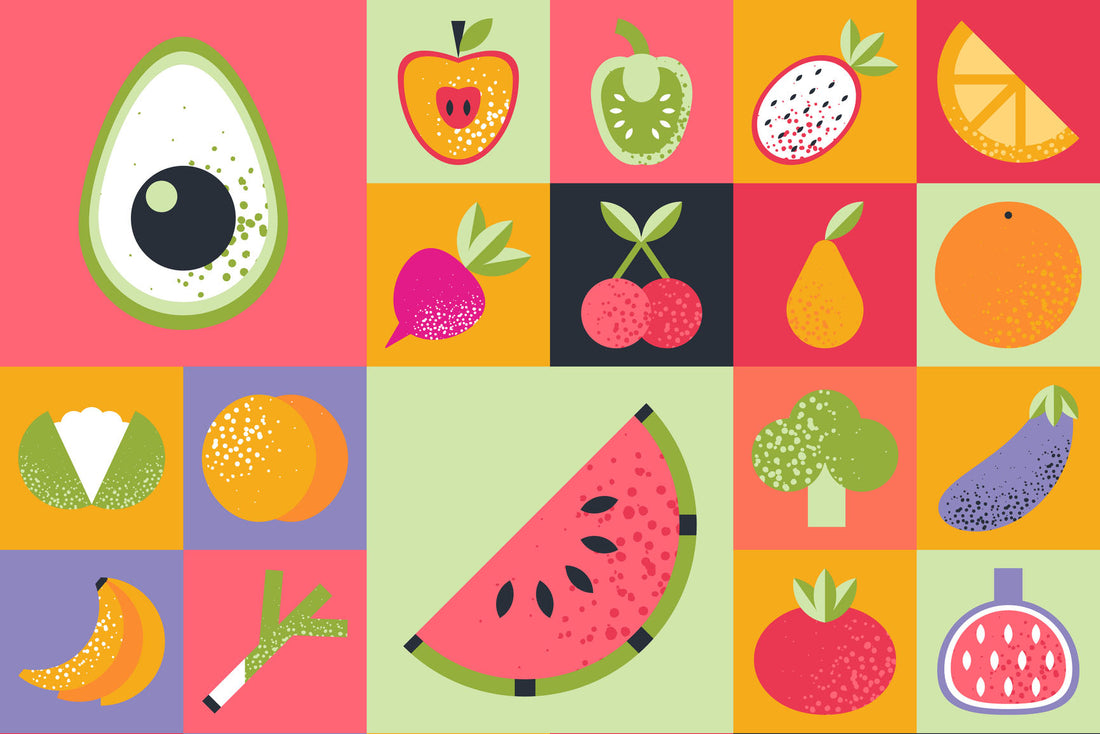
Fruits and Vegetables That Don't Go Together
When it comes to fresh produce, proper storage is key to maximizing both flavour and shelf life. But did you know that some fruits and vegetables just don’t get along? While it might seem convenient to store everything together, keeping fruits and vegetables apart is actually a smart way to prevent spoilage and preserve their freshness. Here’s why—and which pairs you should keep separate.
The Ethylene Effect
Many fruits, like apples, bananas, and avocados, release a natural gas called ethylene as they ripen. While harmless to us, ethylene can cause vegetables to ripen and spoil too quickly. So, when fruits and vegetables are stored together, it’s a recipe for premature wilting and over-ripeness.
Examples of Unhappy Pairings
Some fruits and vegetables are particularly sensitive to ethylene, and keeping them together will cause them to spoil faster. Here are a few common offenders:
- Tomatoes & Cucumbers: Tomatoes release a lot of ethylene, which can make cucumbers lose their crispness and spoil much sooner.
- Apples & Potatoes: Apples give off ethylene, which speeds up the sprouting of potatoes. Storing them together can shorten the life of your spuds.
- Bananas & Leafy Greens: Bananas release ethylene, which can cause leafy greens like lettuce, spinach, and kale to wilt and turn soggy in no time.
- Pears & Carrots: Like apples, pears release a lot of ethylene, which accelerates the aging process of vegetables like carrots, causing them to become limp.
Best Storage Tips
- Fruits: Many fruits, like bananas, peaches, and avocados, should be stored separately from vegetables. Some can even ripen better at room temperature, so it’s best to give them their own space.
- Vegetables: Most vegetables like broccoli, carrots, and lettuce should be kept in the fridge. However, tubers like potatoes and onions thrive in a cool, dry, dark pantry—not the fridge, where moisture can cause them to rot faster.

Separate Ethylene Producers from Sensitive Produce
If you’re short on space or unsure about how to store your produce, the key to keeping everything fresh is to separate ethylene producers from ethylene-sensitive items. Ethylene is a natural gas emitted by some fruits as they ripen, and it can cause nearby vegetables to spoil much faster. To avoid this, make sure to keep your ethylene-sensitive produce—like leafy greens and carrots—away from fruits that release a lot of ethylene, such as apples, bananas, and tomatoes.
For those dealing with limited storage, there’s good news: Some fruits, like citrus, aren’t affected by ethylene and can be stored alongside ethylene-producing fruits without issue. Additionally, special storage solutions like ethylene-absorbing sheets or containers can help manage the gas in your crisper drawer, keeping everything fresh for longer.
|
Ethylene Producers |
Ethylene Sensitive |
|
Avocados |
Bananas (unripe) |
|
Apples |
Broccoli |
|
Bananas (ripe) |
Brussels sprouts |
|
Figs |
Cabbage |
|
Grapes |
Carrots |
|
Melons |
Cauliflower |
|
Pears |
Cucumbers |
|
Peaches and Nectarines |
Leafy Greens |
|
Peppers |
Lettuce |
|
Potatoes |
Onions |
|
Tomatoes |
Squash |
The Bottom Line
Storing your fruits and vegetables correctly is a simple way to extend their freshness and keep your produce tasting great. The next time you’re unpacking groceries, make sure to separate the fruits from the veggies and give them the space they need to stay fresh longer.
References:
1. https://www.realsimple.com/foods-you-should-never-store-together-8727465
2. https://www.marthastewart.com/8296471/fruits-vegetables-never-store-together
